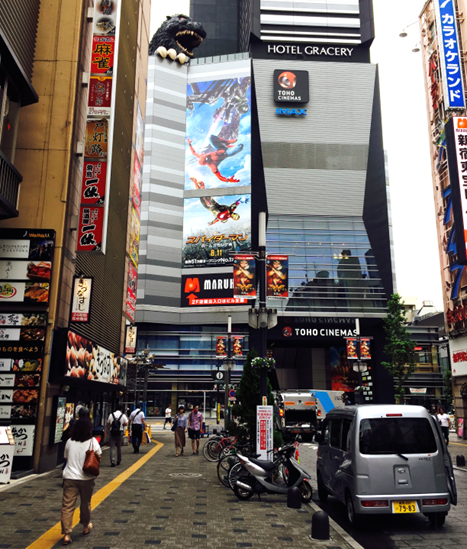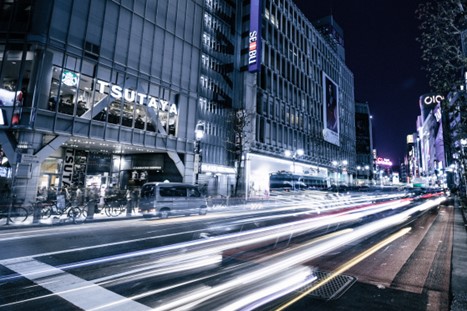Although far from being a professional film critic, I’ve enjoyed the cinema experience for as long as I can remember. I appreciate creativity and imagination across all mediums, and film is no exception. When daily life pushes you to your limits, a Hollywood blockbuster is a fantastic way to abscond from reality, albeit just for a couple of hours.
My last couple of years in the United States were an exciting time to be a movie fan. In 2008, large, flat-screen TVs and stellar surround-sound systems to accompany them were more affordable than ever before. High-definition Blu-ray discs had won the format war to succeed DVDs, and blockbuster films, formatted in glorious 1080p, filled the shelves of the local Best Buy. We had entered an era where, in many ways, the home-theater experience had started to eclipse the theatrical one.
However, after moving to Japan in 2009, it didn’t take me long to realize that the situation had reversed. Not only was high-definition hardware prohibitively expensive (at least on an English teacher’s salary), but even if I could have afforded a large TV and surround-sound system back then, my thin-walled, shoe box of an apartment was far too small for all that. Fortunately, the theatergoing experience in Japan exceeded the expectations that I had carried with me from my previous life in the United States.
The Movie Theater Experience in Japan

Noisy audiences, light and sound emanating from cell phones, floors plastered with popcorn and Pepsi, and low-quality audio-visual hardware: these are just some of the common complaints that have been levied against American movie theaters for decades.
Generally speaking, the Japanese movie theater experience flips the script (poor pun intended) on these annoyances. Throughout my 14 years in Japan, I’ve been to the cinema at least 60 times. On nearly every occasion, I could count on immaculate theaters and audiences silent enough to hear a pin drop (if it weren’t for the crystal-clear audio booming from the state-of-the-art sound system). Once the lights dim and the movie begins, the theater becomes an extension of my living room—my “home away from home” theater.
That being said, there are a few downsides to being a cinema fan in Japan. On average, it costs more to see a movie here. With a few notable exceptions (promotion days, third-party tickets, etc.), expect to pay a minimum of 1,900 yen per ticket, regardless of screen size or quality. Premium theaters such as IMAX cost even more. With the exception of late-night/early-morning shows, there are no time-of-day discounts such as the matinees that budget-conscious Americans can enjoy.
Additionally, mainly due to marketing and holiday timing, blockbuster movies tend to take their sweet time crossing the Pacific Ocean—sometimes debuting months later than in the US. This is a raw deal in an era where plot twists and character reveals can be spoiled by a single Twitter tweet the moment a movie premiers (and often beforehand). It’s worth noting, however, that movies do occasionally premiere in Japan first—usually due to the time zone advantage for global day-and-date releases.
Lastly, you’ll have to get used to Japanese subtitles on any Western movie you see. For many, this is just a minor annoyance. In fact, I sometimes view this as a bonus—a way to side-load Japanese vocabulary, kanji, and grammar into my brain while being entertained by a film.
The Home Box Office Experience

Although I prefer the theatergoing experience in Japan, the home video scene has some unique upsides. With fewer Western streaming services, content that would otherwise be walled off inside platforms like Paramount+ or the US version of Hulu ends up on the Japanese renditions of Netflix and Disney+, respectively. Additionally, when compared to the US streaming scene, there are more shows and movies that have non-exclusive contracts and exist on multiple platforms. Overall, for the time being, you can enjoy your favorite films in Japan while subscribing to fewer services—a win for your pocketbook. Plus, there are still plenty of traditional video rental stores in Japan, so physical media fans (like yours truly) can always rent movies the old-fashioned way.
However, even if you are fortunate enough to live in a detached house with space for a top-notch audio/visual system, you’ll quickly discover that large 4K television sets are significantly more expensive in Japan when compared to the US, especially when you consider average income levels for each country.
Japan Can Be a Treat for Film Fans
As Japan is ethnically homogenous, with approximately 98% of the population being Japanese, it’s not realistic to expect a movie landscape that caters to English-speaking audiences. However, all things considered, if you’re an American cinephile on your way to a life in Japan, have no fear about giving up your passion for Hollywood movies. Better yet: if you love the theater experience, you’re actually in for a treat. Sure, you’ll have to make some adjustments regarding how you view films and the costs involved, but overall, Japan is a great place to be a Hollywood movie fan (at least for the time being).




